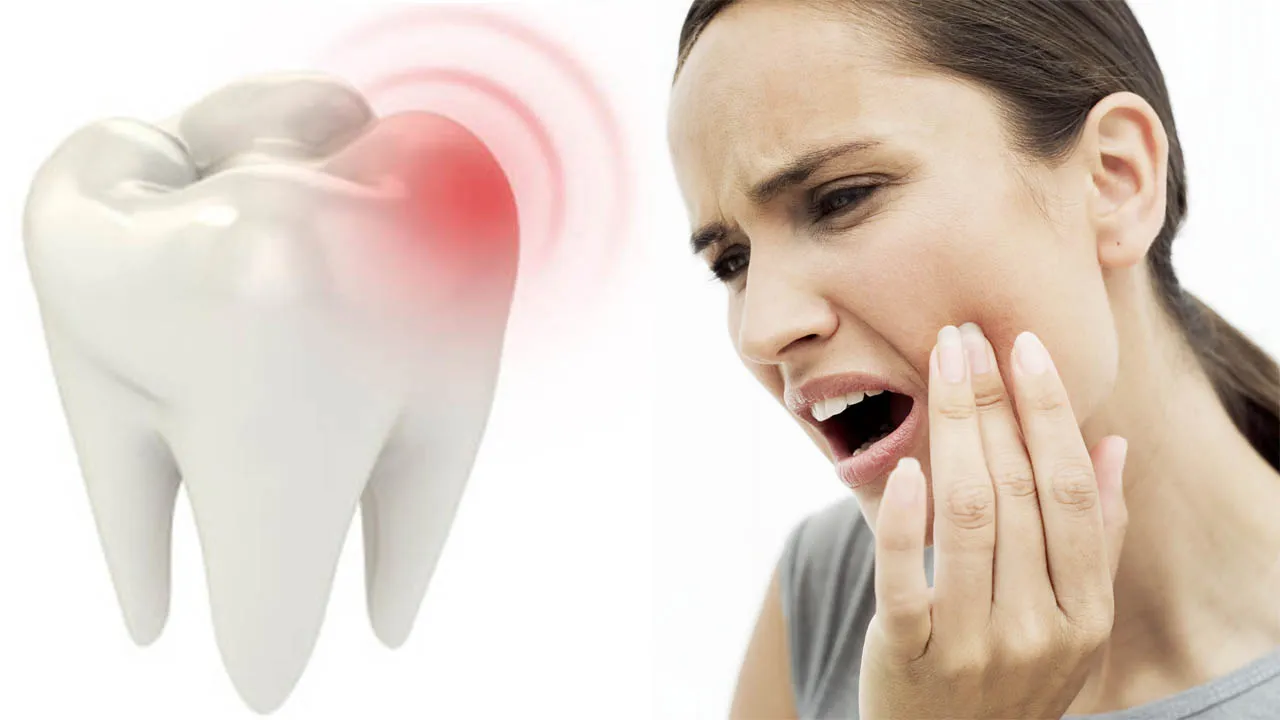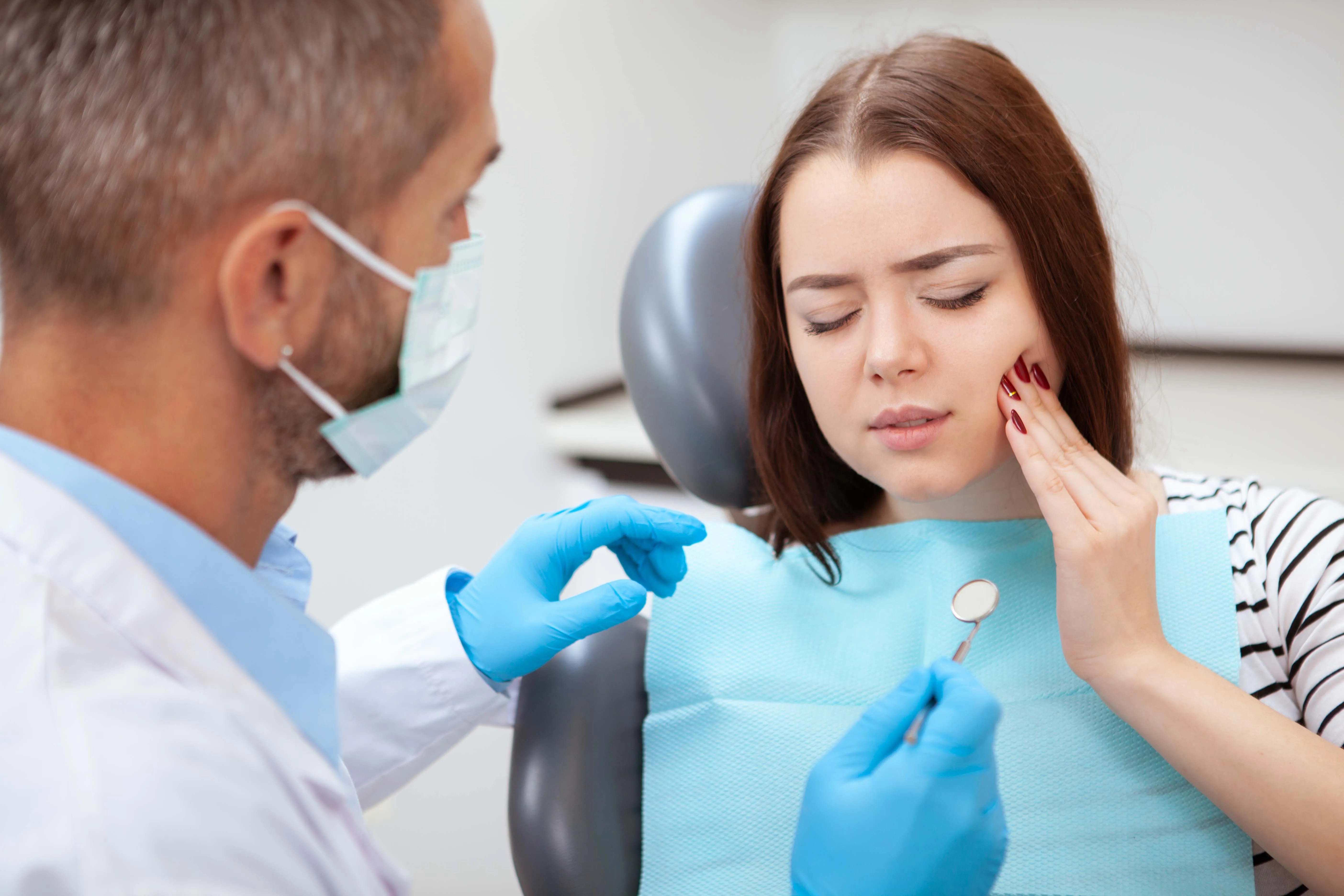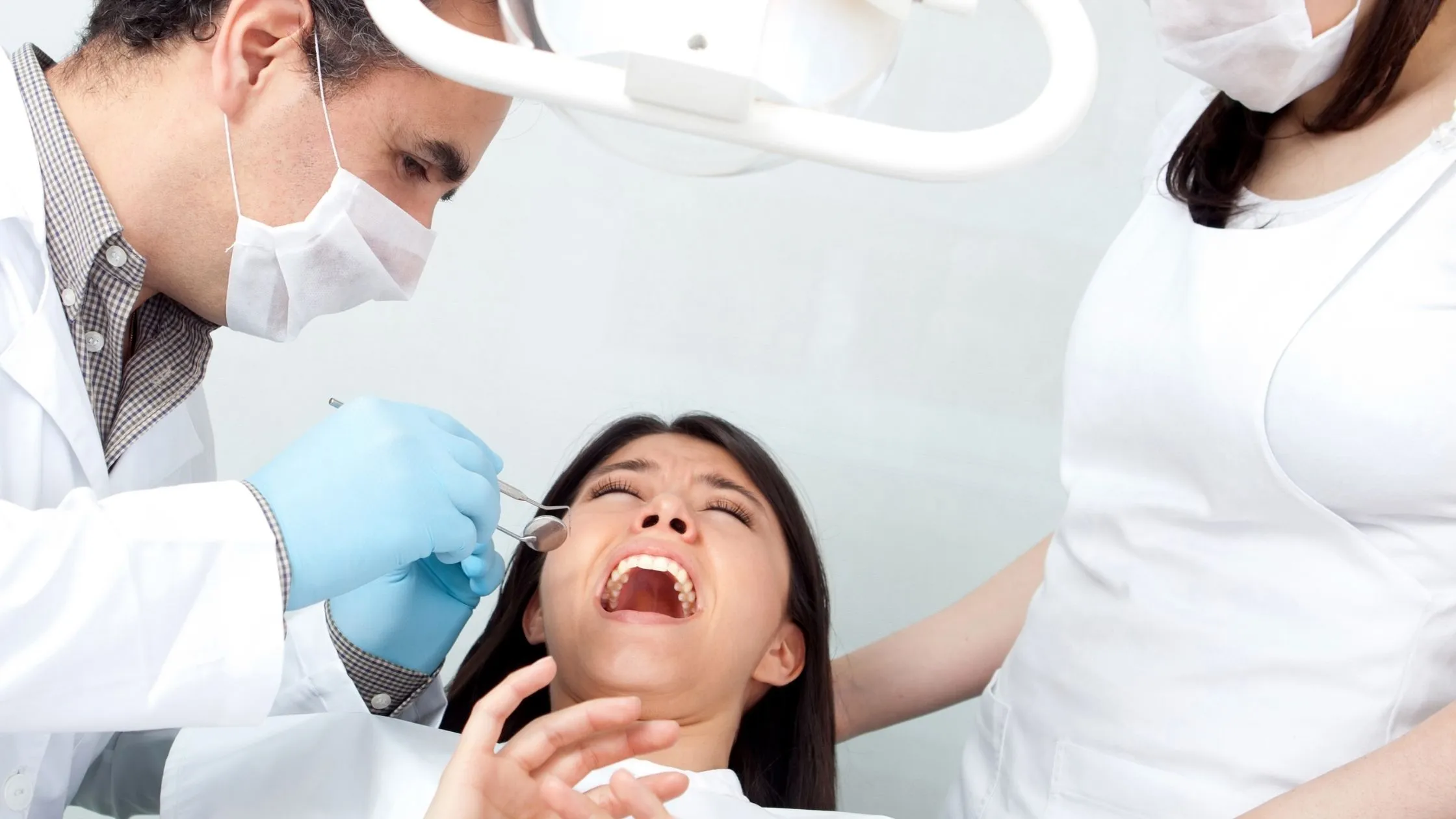
How Can an Emergency Dentist Help Relieve Sudden Tooth Pain? Quick Relief Guide
Tooth pain can appear suddenly in the middle of the night, during an important meeting, or over the weekend when most clinics are closed. The sharp, pulsating pain can make it impossible to eat, sleep, or concentrate. While it’s tempting to wait and hope the pain fades, severe or persistent toothache should never be ignored.
Tooth pain is usually a sign of an underlying issue from infection and decay to a damaged nerve or cracked tooth. Left untreated, the condition can worsen, causing more pain and possibly leading to tooth loss or serious health complications. In this guide, we’ll explore what causes sudden tooth pain, when to see an emergency dentist, how they provide relief, and what you can do at home before getting professional care.
Common Causes of Sudden Tooth Pain
Tooth pain can range from mild discomfort to unbearable throbbing. Understanding its possible causes can help you respond appropriately and seek timely care.
Tooth Decay: The Silent Culprit Behind Most Toothaches
Tooth decay begins when bacteria in plaque produce acids that erode enamel. Over time, small cavities can deepen and reach the dentin layer or pulp, exposing nerves and triggering sharp, shooting pain. If decay progresses unchecked, it can lead to infection or abscess formation both of which require immediate dental intervention.
Dental Abscess: A Dangerous Build-Up of Infection
A dental abscess occurs when bacteria reach the root or surrounding gum tissue, forming a pocket of pus. The resulting pressure causes intense throbbing pain, swelling, and sometimes fever. The pain may radiate to the jaw or ear. Abscesses are medical emergencies. If untreated, the infection can spread to other areas of the body.
Cracked or Broken Tooth: Hidden Damage with Big Consequences
Even a small fracture can expose the inner layers of the tooth, making it extremely sensitive to temperature or pressure. Cracks can develop from chewing hard foods, teeth grinding, or trauma. Pain from a cracked tooth often comes and goes, but it intensifies when biting down. Without prompt care, the crack may expand and lead to infection.
Loose Filling or Dislodged Crown
Old dental work can wear out over time. When a filling or crown loosens, the inner part of the tooth becomes exposed, causing sensitivity and pain. In some cases, food debris and bacteria enter the gap, leading to inflammation or decay beneath the restoration.
Gum Infection or Periodontal Disease
Tooth pain isn’t always caused by the tooth itself. Inflamed or infected gums can create discomfort that mimics toothache. When gum disease advances, the infection can reach the supporting bone, causing teeth to loosen and leading to abscesses.
Sinus Pressure and Tooth Pain
In certain cases, tooth pain originates from the sinuses rather than the teeth. Sinus infections can cause pressure in the upper jaw that radiates to the molars. The pain may worsen when bending forward or lying down.
Tooth Sensitivity After Injury or Whitening
Sometimes, teeth become temporarily sensitive due to recent trauma, teeth grinding, or even whitening treatments. While mild sensitivity is common, sharp or persistent pain may suggest deeper damage that requires evaluation.
When to Call an Emergency Dentist

Not every toothache requires emergency dental treatment, but certain warning signs mean you should call a dentist right away.
Recognizing a True Dental Emergency
You should seek emergency care if your pain is severe, constant, or accompanied by swelling. Situations that require urgent attention include:
Pain that doesn’t subside with over-the-counter medication.
Swelling in the gums, cheek, or face.
Tooth knocked out, broken, or suddenly loose.
Fever, pus, or foul taste in the mouth indicating infection.
Difficulty opening the mouth or swallowing.
Why Acting Fast Matters
Delaying treatment can allow the infection to spread or damage to worsen. What begins as a small cavity might turn into an abscess or nerve infection requiring a root canal or extraction. Quick action ensures better outcomes and less discomfort overall.
What an Emergency Dentist Can Do to Relieve Tooth Pain
Emergency dentists are trained to handle urgent dental issues efficiently and safely. Their approach focuses on fast diagnosis, pain relief, and stabilizing your oral health.
Comprehensive Diagnosis and Imaging
The first step is to identify the exact cause of the pain. The dentist will review your symptoms, medical history, and perform a physical exam. Diagnostic tools such as X-rays help reveal hidden decay, abscesses, or fractures beneath the surface.
Immediate Pain Relief
Once the problem is identified, the dentist will prioritize reducing your pain. This may involve local anesthesia to numb the affected area or prescribing pain-relief medication. For infections, antibiotics are often given to control bacterial spread and inflammation. These initial measures help you feel comfortable while preparing for definitive treatment.
Restorative or Endodontic Treatments
Depending on the diagnosis, several treatments may be performed during your visit:
Filling or Crown Repair
If tooth decay or a broken filling is the cause, the dentist will clean out the decay and restore the tooth using a new filling or crown.
Root Canal Treatment
When the pulp inside the tooth is infected, a root canal removes the infected tissue, disinfects the inner canal, and seals it to prevent further infection. This saves the natural tooth and stops the pain permanently.
Tooth Extraction
If a tooth is too damaged to save, extraction may be the only option. Removing the tooth relieves pain and prevents the infection from spreading to nearby teeth or bone.
Abscess Drainage
For severe infections, the dentist may need to drain the abscess to release pus and pressure. This provides immediate relief and promotes healing.
Treatment for Traumatic Injuries
Emergency dentists also treat injuries caused by accidents or sports.
Knocked-Out Tooth
If the tooth is reimplanted within an hour of injury, it has a good chance of being saved. The dentist will gently clean and reposition the tooth, then use a splint to hold it in place.
Chipped or Loose Tooth
If a tooth is cracked or loosened, stabilization techniques such as bonding or splinting can help preserve it. Prompt care prevents further breakage or nerve damage.
What You Can Do at Home Before Seeing the Dentist
Sometimes it’s not possible to reach the dentist immediately. Here are safe and effective steps you can take at home to reduce discomfort and prevent complications.
Rinse with Warm Saltwater
A gentle saltwater rinse helps clean the area, reduce swelling, and soothe inflamed gums. Mix half a teaspoon of salt in a cup of warm water and rinse for 30 seconds. Avoid hot or cold water as it can worsen sensitivity.
Take Over-the-Counter Pain Relievers
Non-prescription medications such as ibuprofen or acetaminophen can temporarily ease pain and inflammation. Always follow the dosage instructions and never apply aspirin directly to the gums it can cause burns and irritation.
Use a Cold Compress
If your face or jaw is swollen, place a cold pack or wrapped ice on the cheek for 10–15 minutes. This helps numb the pain and reduce swelling.
Avoid Trigger Foods
Stay away from foods that aggravate the pain, such as hot, cold, sugary, or acidic items. Opt for soft foods and chew on the opposite side of your mouth.
Handle Knocked-Out or Broken Teeth Properly
If a tooth or fragment breaks off, rinse it gently with milk or saline never scrub it. Keep it moist in milk or your own saliva and bring it to the dentist as soon as possible. These temporary measures can make you more comfortable but do not replace professional dental care.
Why You Shouldn’t Ignore Sudden Tooth Pain

Ignoring tooth pain is one of the biggest mistakes people make. What feels like a minor ache can quickly escalate into a serious infection or nerve problem.
Pain as a Warning Sign
Tooth pain is your body’s way of signaling damage or infection. Ignoring it allows bacteria to spread deeper into the pulp or jawbone, creating more severe complications.
Potential Consequences of Delaying Treatment
Left untreated, a dental infection can lead to:
Tooth loss due to nerve and bone damage.
Bone infection (osteomyelitis) in the jaw.
Spread of infection to the face, neck, or bloodstream, potentially causing serious health risks.
Early treatment prevents these complications, restores function, and saves you from unnecessary discomfort and cost.
How to Prevent Future Dental Emergencies
While emergencies can happen unexpectedly, many are preventable through consistent oral hygiene and awareness.
Maintain Regular Dental Checkups
Visiting your dentist every six months allows for early detection of cavities, gum disease, or cracked fillings before they cause pain. Preventive cleanings also keep your teeth and gums healthy.
Practice Proper Oral Hygiene
Brush twice a day using fluoride toothpaste and replace your toothbrush every 3–4 months. Floss daily to remove plaque and debris between teeth. Adding a fluoride mouthwash strengthens enamel and prevents decay.
Be Mindful of Your Habits
Avoid biting hard foods, chewing ice, or opening packages with your teeth all of which can cause fractures. If you grind your teeth at night, ask your dentist about a custom mouthguard to protect them.
Protect Your Teeth During Sports
Always wear a properly fitted mouthguard when playing contact sports. It can prevent chips, fractures, and knocked-out teeth during accidental impacts.
Address Small Problems Early
If you notice sensitivity, mild pain, or bleeding gums, schedule a dental visit. Early intervention prevents minor problems from turning into emergencies later.
What to Expect During an Emergency Dental Visit
Knowing what will happen during an emergency visit can help reduce anxiety and prepare you for the process.
Initial Evaluation and Symptom Review
The dentist will start by discussing your pain level, when it started, and any factors that make it worse. This helps determine whether the issue is related to decay, injury, or infection.
Diagnostic Imaging and Examination
X-rays or other imaging may be taken to identify problems hidden beneath the surface such as fractures, abscesses, or deep cavities.
Explanation of Treatment Options
Once the cause is identified, the dentist will explain the available treatments, discuss risks and benefits, and outline immediate steps for relief.
Immediate Relief Procedures
Local anesthesia, temporary fillings, or drainage of abscesses are often performed right away to relieve pain and prevent worsening infection.
Follow-Up and Long-Term Care
After the initial emergency is resolved, a follow-up plan is arranged. This may include further restoration (like a crown or root canal) or preventive treatments to maintain long-term oral health.
Emergency visits are designed to be efficient and comfortable, focusing on quick pain relief and stabilization.
Conclusion
Sudden tooth pain can be frightening, but it’s also an important signal that something needs immediate attention. Whether caused by decay, trauma, or infection, seeing an emergency dentist promptly can relieve pain, prevent complications, and save your natural teeth.
Ignoring the issue allows damage to worsen, often turning a simple fix into a more complex and costly procedure. Acting quickly, maintaining regular checkups, and following good oral hygiene practices are the best ways to ensure long-term dental health. When tooth pain strikes, don’t wait call your emergency dentist and take control of your comfort and your smile.

